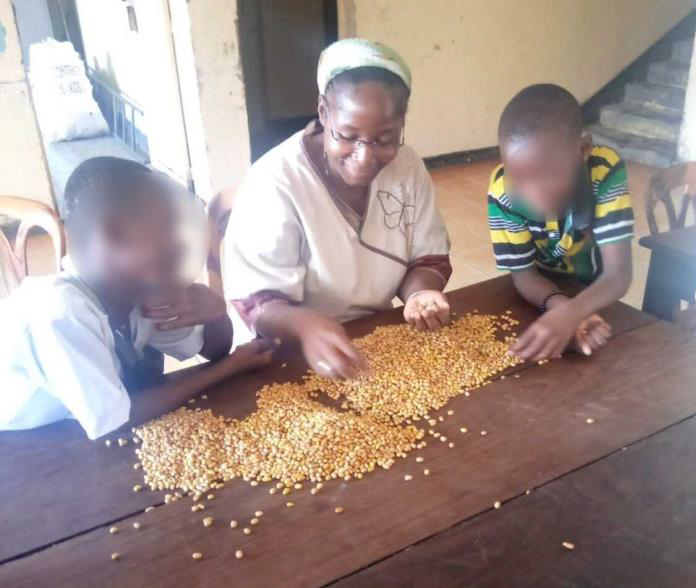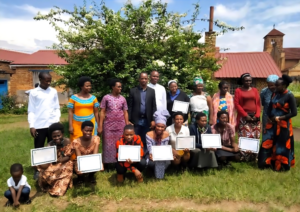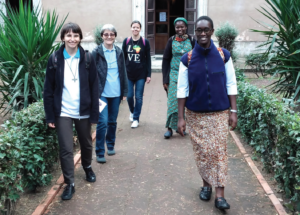BY SR. MARIETTE MACOZI KAPUTA, KINSHASA, DRC
When I arrived in Kinshasa three months ago, I received the appointment to work at ORPER (Oeuvre de Reclassement et de Protection des Enfants de la Rue), a structure that welcomes children on and off the street for various reasons. As I welcomed this appointment with joy, I was still apprehensive about how to deal with these children, whom I imagined to be very difficult. To my great surprise, these children welcomed me with open arms and after a few days they were at ease with me as if we had known each other for a long time. They immediately noticed my twisted Lingala and since then, they have not hesitated to make corrections while encouraging me that I will eventually speak well. These children surprised me with their spirit of solidarity and sharing. When there is food, for example, and one of them is absent, they take care to save some food, so that everyone gets their share of the meal.
These children surprised me with their spirit of solidarity and sharing. They spontaneously look out for each other, and they don’t hesitate to suggest to me certain activities that can make the organization work easier in general.
Although they have quite heavy stories, these children teach me to live in gratitude for what they receive as service. They affectionately say ‘thank you mom sister’ for any service rendered. This gives me a lot of joy and makes me believe in a thought from Ubuntu wisdom that says: ‘Working for the happiness of others is the best way to personal happiness’. Through simple gestures and actions on a daily basis, I communicate the love of Christ to these children, because some will never know the joy of being loved by their own.
I am also edified by the contribution of many people who assist ORPER with their various donations for the benefit of the children. Many benefactors often decide to come and share the joy with our children on their birthdays by offering them a festive meal or other gifts. We have many local partners who support us in the educational work of these marginalized children. Thus, these children feel loved and are offered the same opportunities for their harmonious integration into society. The children are generally happy and content to live in the center, which has become their home.








